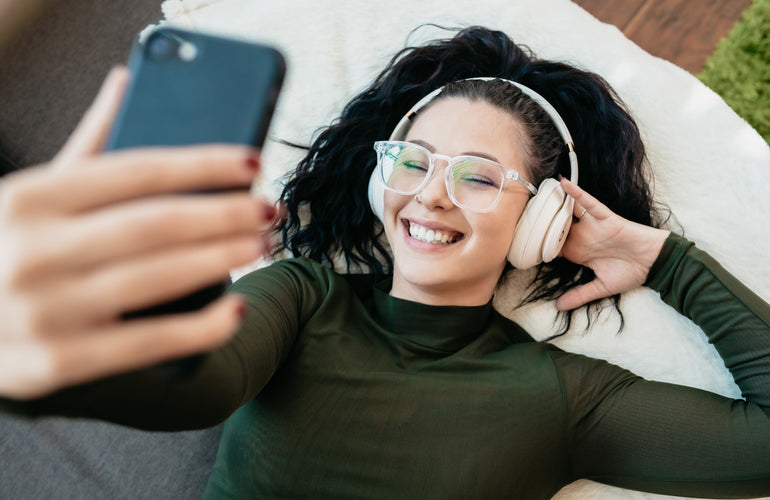Blue is the new black—at least when it comes to “computer glasses.” With most office workers still employed remotely, many of us are logging in more time than ever at our Work from Home (WFH) desks and stations. That means increased exposure to the “blue light” from our devices…from laptops to smartphones.
Check out the latest Blue Light Blocking Glasses that are not only stylish, but functional.

Blue-light glasses are fitted with lenses that filter out certain light waves that are emitted by the sun and, to a lesser extent, by digital devices like phones, laptops and tablets, according to a recent article in The New York Times. Blue light is not inherently bad, in that it boosts attention and wakefulness during the day; however, it also suppresses the natural production of melatonin at night. As the article states, by limiting exposure to blue light by as little as 20 percent, we can sleep better, experience less eye strain and prevent potential retinal damage.
The American Association of Ophthalmologists in San Francisco, CA, also cites evidence that blue light affects the body’s “circadian rhythm”—our natural wake and sleep cycle. The best way to avoid sleep disruption is to avoid using screens two to three hours before bedtime, as noted on its website (AAO.org); using "dark" or "night" mode on devices in the evening can help, too.

In a recent interview with National Public Radio, Mark Rosenfield, PhD, a professor of Biological and Vision Sciences from the State University of New York’s College of Optometry, observed that eye strain stems not necessarily from screens themselves, but how people use them. “They tend to hold them at pretty close distances—especially smartphones. We found that people were holding them sometimes as closely as 8 or 9 inches away, whereas printed material is typically held around 16 inches away,” he said. Moreover, “People tend to look at these screens for very long periods of time without taking breaks.”
Rosenfield also concurred with The American Association of Ophthalmologists’ studies on how blue light affects sleep cycles. “Studies have shown the blue light can interfere with our bodies' light cycles. We all a have natural rhythm so that we know when we get tired and when it's time to go to bed.” Looking at your screen late at night, he continued, “probably isn't a good idea, but unfortunately, many of us still do so. The blue-blocking filters might be useful in that regard.”
Blenders Eyewear offers an array of unisex styles designed specifically and effectively to block out blue light. Better yet, they’re not only functional, but fashionable—from perennially chic aviator frames to timeless horn-rimmed looks.
SIDEBAR: HOW TO EASE EYE STRAIN
If you work with computers all day, protect your eyes from strain with these extra tips from the American Association of Ophthalmologists in San Francisco, CA (AAO.org).
- Sit about 25 inches (arm's length) from the computer screen. Position the screen so that you are gazing slightly downward.
- Take regular breaks using the “20-20-20” rule: every 20 minutes, shift your eyes to look at an object at least 20 feet away for at least 20 seconds.
- When your eyes feel dry, use artificial tears to refresh them.
- Adjust your room lighting and try increasing the contrast on your screen to reduce eye strain. Use a matte screen filter if needed.
- If you wear contact lenses, give your eyes a break by wearing your glasses.

















